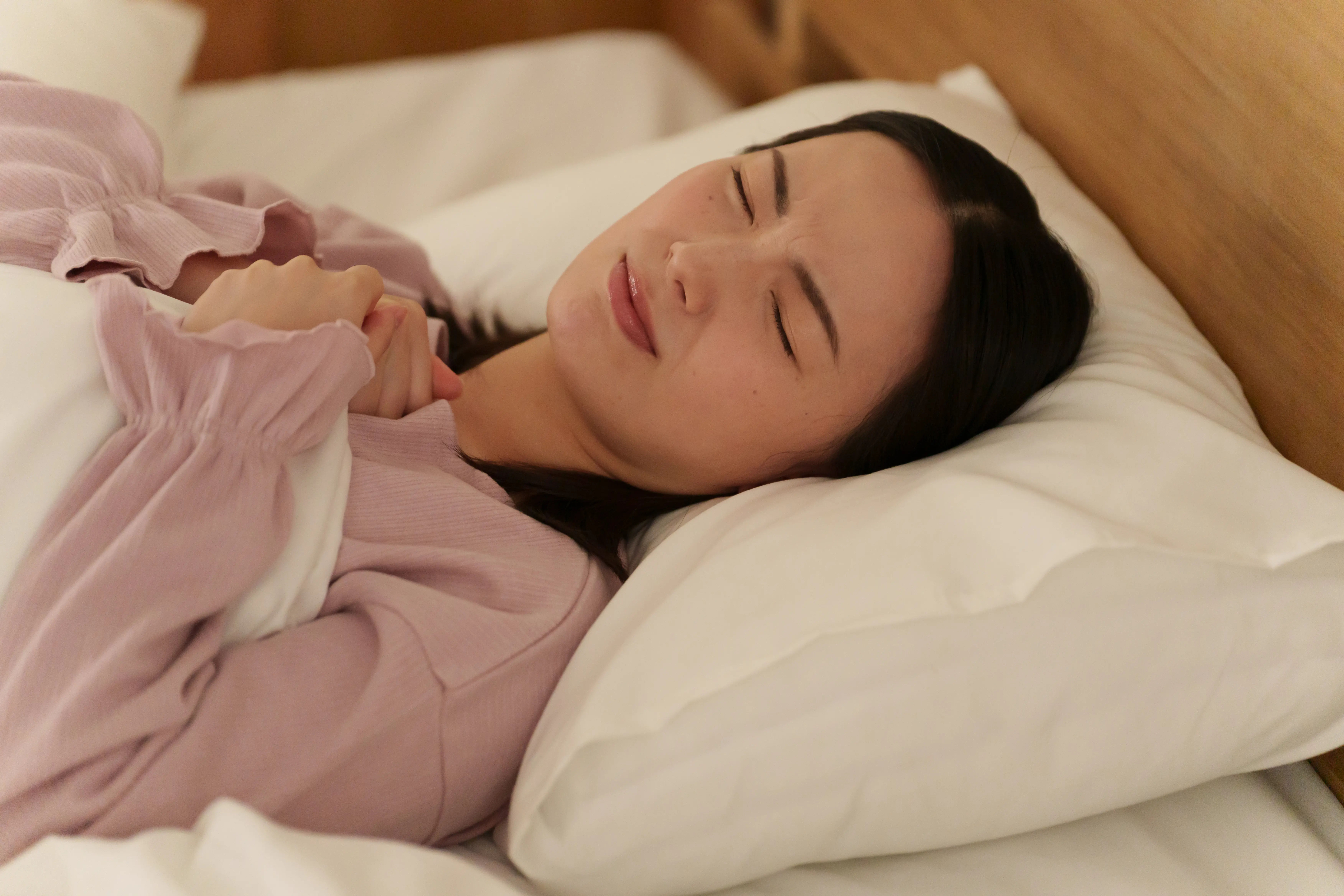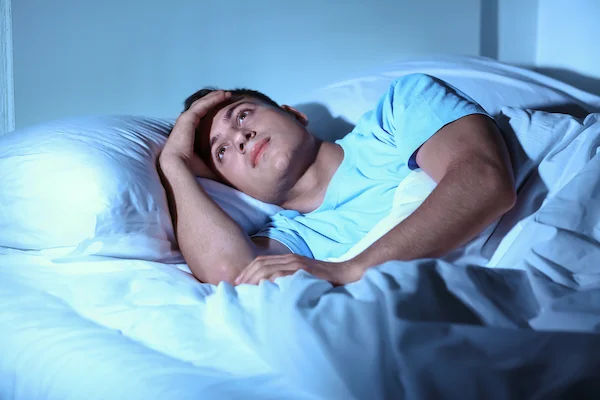Pollution Effect on Sleep Quality and Ways to Restore Restful Nights
Discover how pollution impacts your sleep quality and learn practical tips to restore restful, rejuvenating nights.

Written by Dr. Md Yusuf Shareef
Reviewed by Dr. Rohinipriyanka Pondugula MBBS
Last updated on 13th Jan, 2026

Introduction
You've tried a warm bath, cutting out caffeine, and sticking to a strict bedtime. Yet, you still wake up feeling groggy and unrested. Could the culprit be lurking not in your habits, but in the very air you breathe and the environment around you? Mounting scientific evidence points to a silent saboteur of our slumber: pollution. This article isn't just about the haze outside your window; it's a deep dive into how air, noise, and light pollution directly degrade your sleep quality, leaving you fatigued and unfocused. We'll unravel the science behind this connection, identify who is most at risk, and, most importantly, provide you with a practical arsenal of strategies to reclaim your nights and wake up feeling truly refreshed. Understanding this link is the first step toward building a personal sanctuary for deep, restorative sleep.
The Unseen Intruder: Understanding the Pollution-Sleep Connection
We often think of pollution as an external environmental issue, but its effects are deeply personal and physiological, especially when it comes to sleep. Sleep is not a passive state but an active, complex process essential for brain function, immune health, and cellular repair. Pollution interferes with this delicate process on multiple fronts. It’s not merely about being woken up by a loud truck (though that's part of it); it’s about how contaminants trigger inflammation, disrupt hormonal balance, and prevent your body from reaching the deepest, most restorative stages of the sleep cycle.
More Than Just a Cough: The Systemic Impact of Pollution
When we inhale polluted air, the irritation isn't confined to our throats. Microscopic particles and gases can enter the bloodstream, triggering a systemic inflammatory response. This inflammation can affect the central nervous system, including the brain regions that regulate sleep. Furthermore, pollutants can directly irritate the nasal passages and lungs, leading to swelling and congestion. This physical obstruction makes breathing more laborious, a condition that can worsen significantly at night, leading to snoring, sleep apnoea, and frequent awakenings as your body struggles for oxygen.
The Body's Nightly Repair Cycle vs. Environmental Assault
Your body follows a natural 24-hour cycle known as the circadian rhythm, governed by a "master clock" in the brain. This clock relies on external cues like light and darkness to synchronise itself. Light pollution from streetlights or screens confuses this clock, suppressing the production of melatonin, the hormone that signals it's time to sleep. Meanwhile, noise pollution acts as an alarm trigger, constantly shifting your brain from deep sleep back to a lighter, more alert stage even if you don't fully wake up. This fragmentation severely compromises sleep quality, preventing you from feeling rested.
Consult a Sleep Medicine Specialist for the best advice
Air Pollution: The Invisible Sleep Thief
The link between air pollution and respiratory diseases is well-known, but its role as a disruptor of sleep quality is equally significant. Studies, including one published in the Annals of the American Thoracic Society, have found that individuals exposed to higher levels of certain air pollutants report significantly poorer sleep efficiency, a measure of the time spent asleep versus time spent in bed.
PM2.5: The Tiny Particle with a Massive Impact on Your Airways
PM2.5 refers to fine particulate matter smaller than 2.5 micrometres so small it can bypass the body's natural defences and penetrate deep into the lung tissue and even enter the bloodstream. This is a primary culprit behind sleep disruption. These particles cause irritation and inflammation in the respiratory system, leading to a heightened risk of sleep-disordered breathing like sleep apnoea. Research has shown that for every 10 micrograms per cubic metre increase in PM2.5 exposure, the odds of experiencing low sleep efficiency increase by nearly 50%.
Nitrogen Dioxide (NO2) and Sulfur Dioxide (SO2): Inflammation Instigators
Often emitted from vehicle exhaust and industrial processes, Nitrogen Dioxide (NO2) is a potent respiratory irritant. Exposure to NO2 has been correlated with increased arousal during sleep, meaning your brain is nudged into a lighter sleep stage more often, preventing deep, restorative rest. Similarly, Sulfur Dioxide (SO2) can aggravate asthma and other chronic respiratory conditions, making it difficult to breathe comfortably throughout the night and directly impacting your sleep quality.
Noise Pollution: The Auditory Alarm Clock You Didn't Set
Even if the air in your bedroom is pure, noise pollution can be a major barrier to deep sleep. The urban soundscape from traffic and sirens to noisy neighbours creates a constant state of auditory intrusion that your brain must process, even while you're asleep.
How Your Brain Processes Sound During Sleep
Your auditory system remains active during sleep, acting as a sentinel for potential dangers. When a sudden noise occurs, it can trigger an "arousal," a shift in brain wave patterns to a lighter stage of sleep or even a brief awakening. These events fragment your sleep architecture, reducing the time spent in crucial REM and deep-wave sleep. Consistent exposure to nighttime noise, such as living near an airport, has been linked to long-term issues like hypertension and chronic fatigue due to this persistent sleep disruption.
Reclaiming Your Sleep: Practical Strategies for a Polluted World
While we can't single-handedly clear the city's air or silence all traffic, we can take powerful steps to create a personal sleep sanctuary that mitigates these environmental assaults. The goal is to build layers of defence between you and the pollution.
Fortifying Your Indoor Air Sanctuary
Since we spend about one-third of our lives in the bedroom, controlling the indoor environment is paramount.
The Air Purifier Advantage: Investing in a high-quality air purifier with a True HEPA filter is one of the most effective actions you can take. HEPA filters are capable of capturing over 99.97% of PM2.5 particles and other allergens. Place it in your bedroom and run it continuously on a low setting, especially at night. If you wake up consistently with a stuffy nose or cough despite these measures, it may be worth consulting a doctor online with Apollo24|7 to rule out underlying allergies or respiratory issues.
Creating a Soundproof Sleep Oasis
Combating noise pollution requires a multi-pronged approach.
White Noise Machines: Instead of fighting noise with silence, mask intrusive sounds with a consistent, soothing sound. White noise machines or apps generate a steady ambient sound (like rainfall or static) that can drown out unpredictable noises like car horns or barking dogs, preventing the startling "arousals" that disrupt your sleep cycle.
Conclusion
The evidence is clear: the quality of our environment directly dictates the quality of our sleep. Pollution, in its various forms, acts as a persistent thief in the night, robbing us of the deep, restorative rest we need to thrive. By understanding the mechanisms from the inflammatory effects of PM2.5 on our airways to the melatonin-suppressing power of blue light, we shift from being passive victims to empowered individuals. You have the tools to fight back. Transforming your bedroom into a controlled haven with clean air, calming sound, and absolute darkness is not a luxury; it's a necessary prescription for health in the modern world. Start tonight. Assess your sleep environment, implement one or two changes, and take the first step on the path to reclaiming the peaceful, rejuvenating sleep you deserve.
Consult a Sleep Medicine Specialist for the best advice
Consult a Sleep Medicine Specialist for the best advice

Dr. Suresh G
General Physician/ Internal Medicine Specialist
25 Years • MBBS, MD
Bangalore
Apollo Clinic Bellandur, Bangalore
(225+ Patients)

Dr Helan Rajan
Ent Covid Consult
5 Years • MBBS MS ENT
Pune
Apollo Clinic, Nigdi, Pune

Dr. Shiba Kalyan Biswal
Pulmonology Respiratory Medicine Specialist
18 Years • MBBS,MD,DM(AIIMS Delhi)
Gurugram
APOLLO SUGAR CLINICS GURUGRAM, Gurugram

Dr. Priya Sharma
Pulmonology/critical Care Specialist
9 Years • DM (PULMONARY MEDICINE), DNB, EDARM, MNAMS
Delhi
Apollo Hospitals Indraprastha, Delhi
Dr Srinivas Rajagopala
Pulmonology Respiratory Medicine Specialist
20 Years • MBBS, MD (Int Med), DM (Pul & Crit Care), Fellowship in Lung Transplantation (Toronto)
Chennai
Apollo Cancer Speciality Hospital, Teynampet, Chennai
Consult a Sleep Medicine Specialist for the best advice

Dr. Suresh G
General Physician/ Internal Medicine Specialist
25 Years • MBBS, MD
Bangalore
Apollo Clinic Bellandur, Bangalore
(225+ Patients)

Dr Helan Rajan
Ent Covid Consult
5 Years • MBBS MS ENT
Pune
Apollo Clinic, Nigdi, Pune

Dr. Shiba Kalyan Biswal
Pulmonology Respiratory Medicine Specialist
18 Years • MBBS,MD,DM(AIIMS Delhi)
Gurugram
APOLLO SUGAR CLINICS GURUGRAM, Gurugram

Dr. Priya Sharma
Pulmonology/critical Care Specialist
9 Years • DM (PULMONARY MEDICINE), DNB, EDARM, MNAMS
Delhi
Apollo Hospitals Indraprastha, Delhi
Dr Srinivas Rajagopala
Pulmonology Respiratory Medicine Specialist
20 Years • MBBS, MD (Int Med), DM (Pul & Crit Care), Fellowship in Lung Transplantation (Toronto)
Chennai
Apollo Cancer Speciality Hospital, Teynampet, Chennai
More articles from Sleep disorders
Frequently Asked Questions
1. Can air pollution cause sleep apnoea?
Yes, studies have shown a strong correlation. Air pollution, particularly PM2.5 and NO2, irritates and inflames the upper airways, which can cause or worsen obstruction during sleep, a hallmark of obstructive sleep apnoea.
2. What is the best type of air purifier for improving sleep quality?
Look for an air purifier with a True HEPA filter, which is certified to remove over 99.97% of particles as small as 0.3 microns, including PM2.5, dust, and pollen. A model with a low noise rating (under 50 decibels) is ideal for the bedroom.
3. How does light from my phone affect my sleep if I use it before bed?
The blue light emitted by phone screens mimics daylight and directly suppresses the production of melatonin, the hormone that signals your body it's time to sleep. This delays sleep onset and can reduce the overall quality of your rest.
4. Are there any specific houseplants that help with indoor air pollution for better sleep?
Plants like Snake Plant, Spider Plant, and Peace Lily are known for their air-purifying qualities, as they can absorb certain volatile organic compounds (VOCs). However, their impact is modest compared to a HEPA air purifier. They are best used as a complementary measure.
5. I live on a busy street. What's more effective for noise: earplugs or a white noise machine?
This is personal preference. Earplugs block sound physically but can be uncomfortable for some. A white noise machine masks disruptive noises by providing a consistent, soothing ambient sound, which many find less intrusive and more effective for staying asleep.




